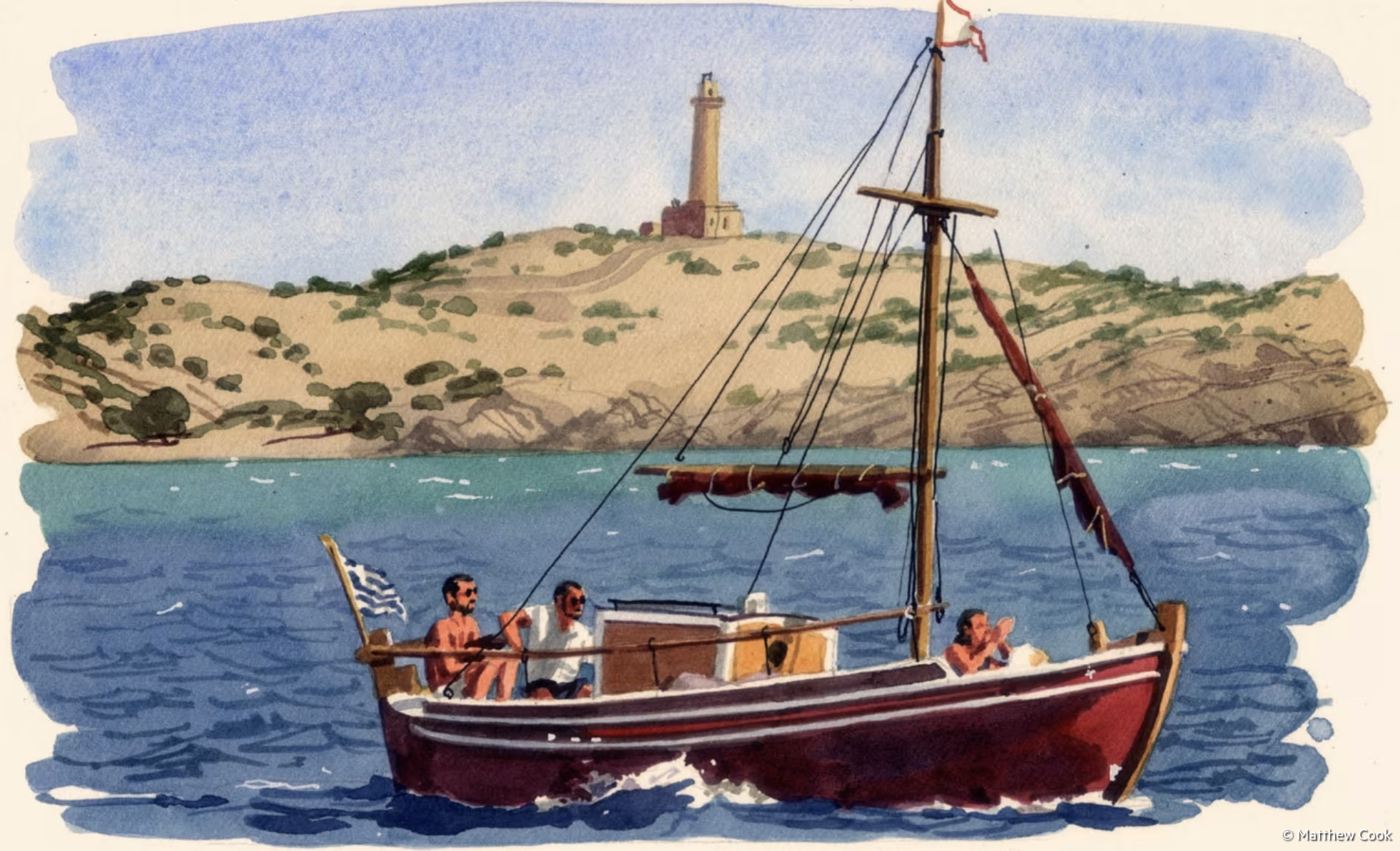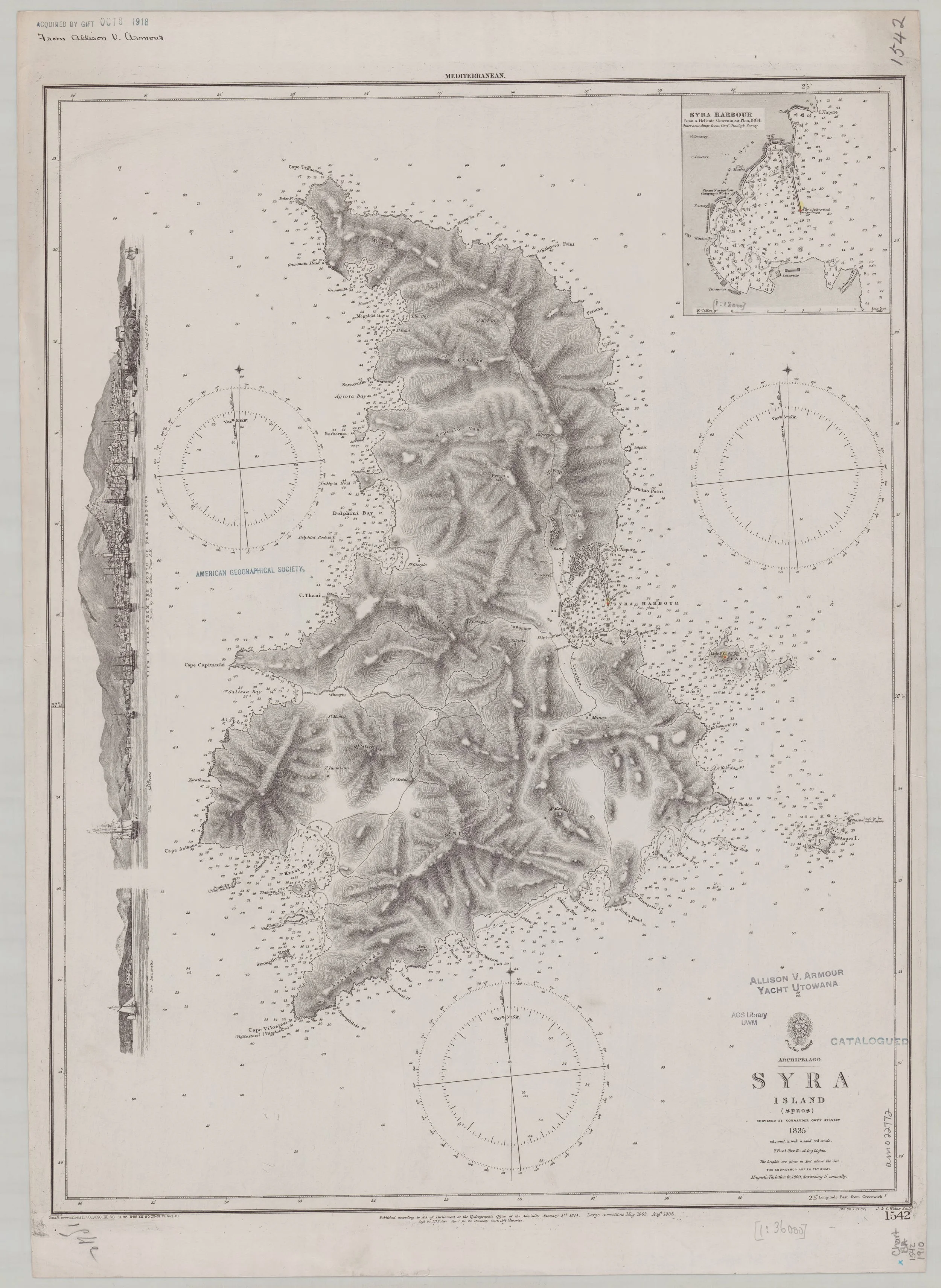Postcard from Syros: a microcosm of maritime heritage
By Rachel Howard in the Financial Times
Image Matthew Cook
“The sea is our element,” says Dimitris Stavrakopoulos. “At heart, every Greek is an Odysseus.” It’s hard to argue with this statement in the circumstances. Stavrakopoulos is steering the carved tiller of his kaiki with his foot, as he navigates the ferries, cargo ships and other vessels plying the port of Hermoupolis, capital of the Cyclades. Nattily dressed in a black sailor’s cap and a claret-coloured sweater that matches the paintwork of his wooden boat, the Kallia M, Stavrakopoulos looks every bit the heroic seafarer. The island of Syros is a microcosm of Greece’s maritime history. We putter beneath hulking tankers moored in the shipyard — founded in 1856 when the nation’s first steamships were built here — past the stately homes of Vaporia, where 19th-century shipowners watched their vessels come and go from their waterfront verandas. During the Greek war of independence in the 1820s, wealthy merchants fled the islands close to Asia Minor and established vast fleets and fortunes on Syros, transforming it into the shipping capital of the Aegean. The locals had been building more modest boats for millennia: as we cruise along the deserted north-east coastline, Stavrakopoulos points to the ancient settlement of Chalandriani, where Bronze Age engravings of longboats have been found.
Kaikia, such as the Kallia M, are the small, traditional wooden boats found in the Ionian and Aegean — short-masted, famously seaworthy, and usually built without plans by the boatbuilder’s memory alone. Designed as fishing boats, tenders or to transport goods, livestock and people, long before there were any roads or ferries, these boats were built to last. They are part of the postcard view of any Greek island port, and yet they are becoming scarcer — during the past 30 years, almost 14,000 have been destroyed under an EU directive designed to prevent overfishing. As well as giving up their fishing licence, fishermen must scrap their vessel to qualify for a generous subsidy.


